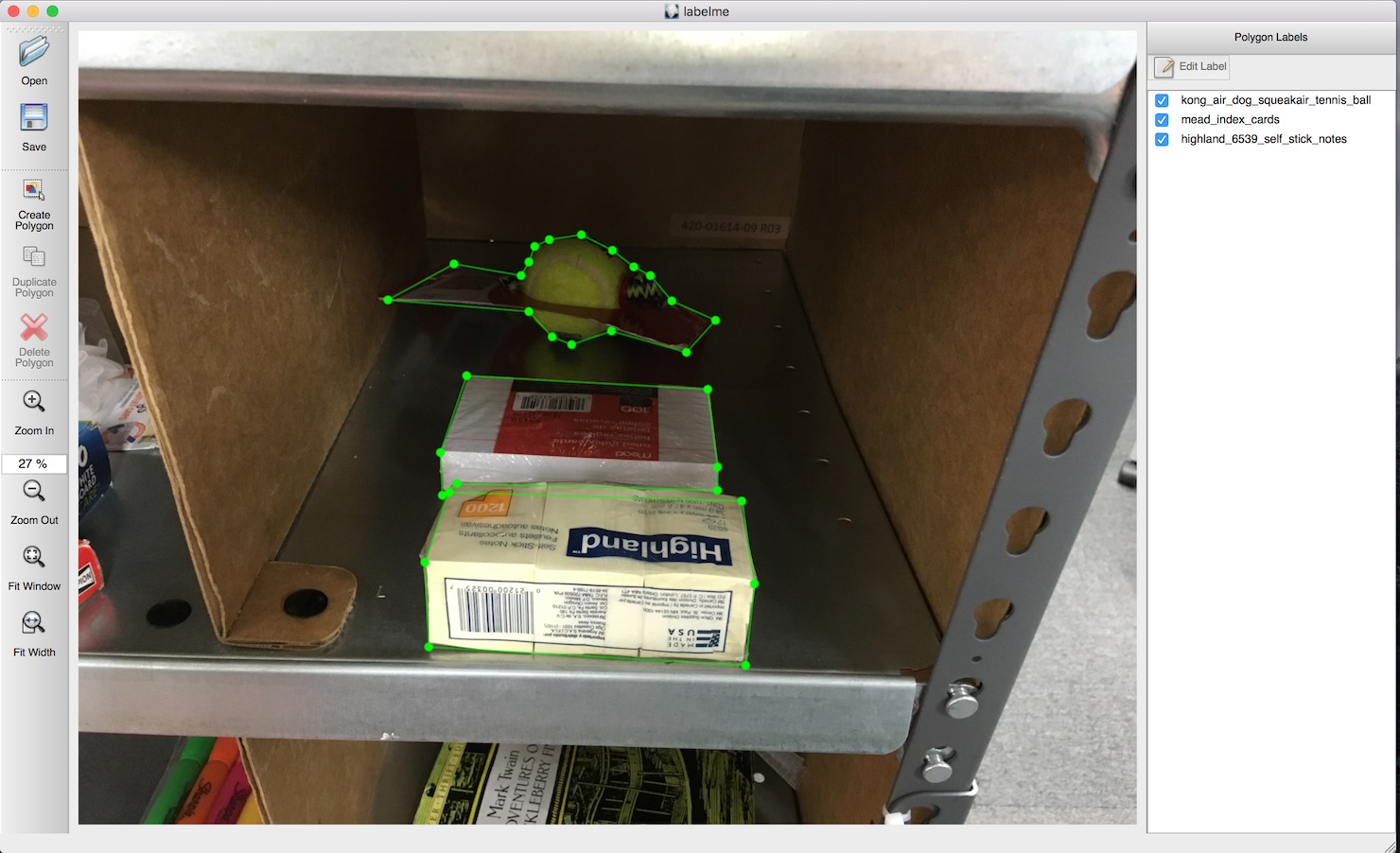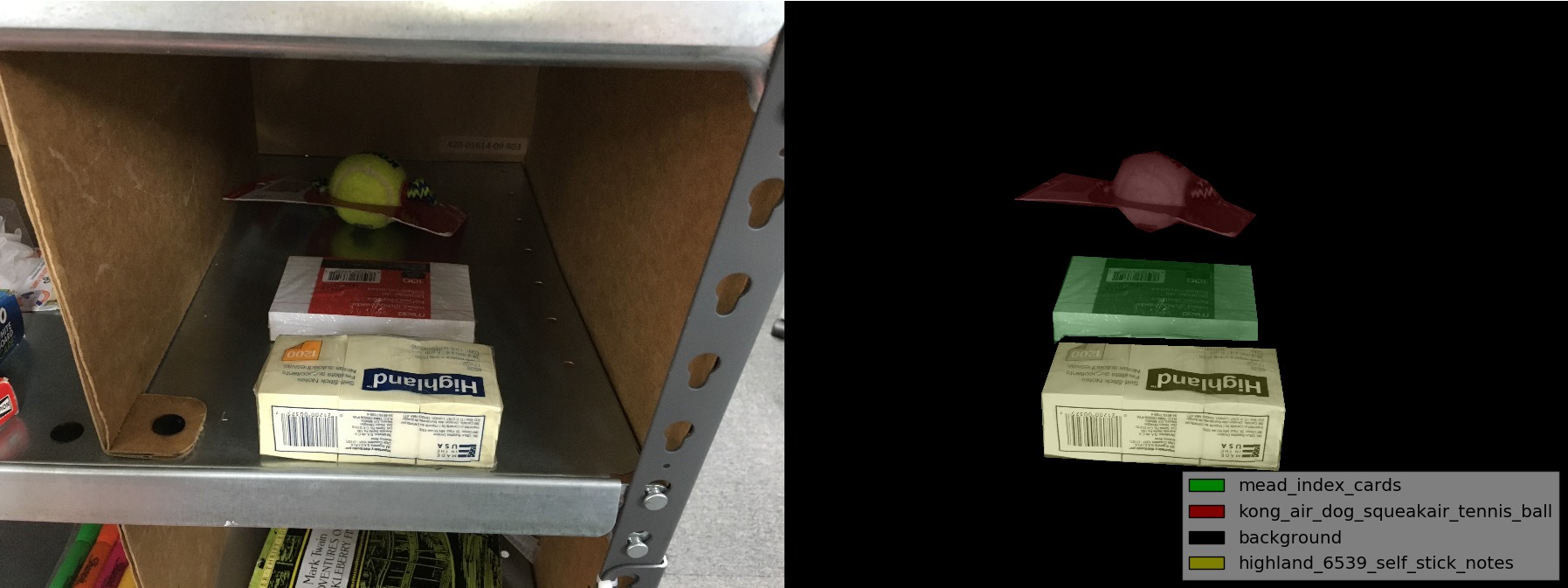Labelme is a graphical image annotation tool inspired by http://labelme.csail.mit.edu.
It is written in Python and uses Qt for its graphical interface.
- Ubuntu / macOS / Windows
- Python2 / Python3
- PyQt4 / PyQt5
There are options:
- Platform agonistic installation: Anaconda, Docker
- Platform specific installation: Ubuntu, macOS
Anaconda
You need install Anaconda, then run below:
conda create --name=labelme python=2.7
source activate labelme
conda install pyqt
pip install labelmeDocker
You need install docker, then run below:
wget https://raw.githubusercontent.com/wkentaro/labelme/master/scripts/labelme_on_docker
chmod u+x labelme_on_docker
# Maybe you need http://sourabhbajaj.com/blog/2017/02/07/gui-applications-docker-mac/ on macOS
./labelme_on_docker static/apc2016_obj3.jpg -O static/apc2016_obj3.jsonUbuntu
sudo apt-get install python-qt4 pyqt4-dev-tools
sudo pip install labelmemacOS
brew install qt qt4 || brew install pyqt # qt4 is deprecated
pip install labelmeAnnotation
Run labelme --help for detail.
labelme # Open GUI
labelme tutorial/apc2016_obj3.jpg # Specify file
labelme tutorial/apc2016_obj3.jpg -O tutorial/apc2016_obj3.json # Close window after the saveThe annotations are saved as a JSON file. The file includes the image itself.
Visualization
To view the json file quickly, you can use utility script:
labelme_draw_json tutorial/apc2016_obj3.jsonConvert to Dataset
To convert the json to set of image and label, you can run following:
labelme_json_to_dataset tutorial/apc2016_obj3.json -o tutorial/apc2016_obj3_jsonIt generates standard files from the JSON file.
- img.png: Image file.
- label.png: Int32 label file.
- label_viz.png: Visualization of
label.png. - label_names.txt: Label names for values in
label.png.
Note that loading label.png is a bit difficult
(scipy.misc.imread, skimage.io.imread may not work correctly),
and please use PIL.Image.open to avoid unexpected behavior:
# see tutorial/load_label_png.py also.
>>> import numpy as np
>>> import PIL.Image
>>> label_png = 'tutorial/apc2016_obj3_json/label.png'
>>> lbl = np.asarray(PIL.Image.open(label_png))
>>> print(lbl.dtype)
dtype('int32')
>>> np.unique(lbl)
array([0, 1, 2, 3], dtype=int32)
>>> lbl.shape
(907, 1210)This repo is the fork of mpitid/pylabelme, whose development has already stopped.




